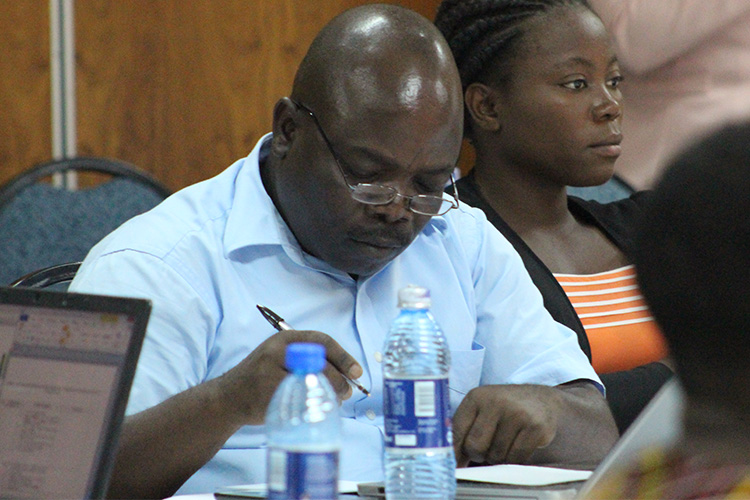FEDOMA, Stakeholders for Tax Exemption on AT in Malawi
17 October, 2018
The Federation of Disability Organizations in Malawi (FEDOMA), reiterated its commitment to continue engaging the Governmet of Malawi to seriously consider removing duty on assistive technology devices imported into the country. The sentiments were made at the Assistive Technology (AT) seminar co-organize with the Southern Africa Federation of the Disabled (SAFOD), in Lilongwe, Malawi, on 17th October 2018. The event aimed to increase awareness about the range of AT products available, and identify challenges and possible solutions to increasing access to AT in Zambia.
The seminar is part of the the Assistive Technology Information Mapping project (AT-Info-Map) currently being implemented by SAFOD in 10 countries in Southern Africa, namely Botswana, Lesotho, Malawi, Zambia, South Africa, Mozambique, Angola, Swaziland, Namibia and Zimbabwe. This innovative project is currently capturing, organizing, and mapping availability of AT with a mobile data system called CommCare.
Throughout the project, a series of consultation meetings and workshops with various stakeholders, including relevant government ministries, AT suppliers, rehabilitation professionals, and disability advocates, have yielded a number of lessons regarding AT, key among them is the need for increasing general awareness about AT.
During the Lilongwe AT seminar, stakeholders noted that therer was need to sustain the engagement meetings with Government that FEDOMA - an umbrella organization of DPOs in Malawi - had already initiated particualrly with the Ministrer of Finance and Economic Development, where they have been pushing for the exemption of duty on assistive technology.
"We have been pushing for the review of the current Disability Act to include clauses on tax exemption for assistive devices. However, the officials at the Ministry of Finance advised us that the most relevant law to review is the Taxation Act rather than the Disability Act since it is te former that concened with tax issues. Our engagement is on-going and progressing well," said Ms. Virginia Nyalo, FEDOMA Officer.
However, following SAFOD's presentation on categories of AT based on the research work done by University of Washington, it was noted during the seminar that there was a risk that even if the Taxation Act were to exempt some AT products from being taxed, many other AT categories might still be not be taken on board due very low awareness levels among not only the Government technocrats but even teh DPOs themselves.
Stakeholders confessed that the SAFOD presentation revealed many AT categories that they were not aware prior to the seminar, and therefore the main recommendation was that FEDOMA and its members/stakeholders should rather prioritize raising awareness among Government tehchnocrats about what constitutes AT instead of just limiting on taxation issues only. In the end, if awareness is not prioritized, what may happen is that only selected At such as wheelchairs, crutches and probably hearing aids may be exempated leaving out equally important At catergories.
SAFOD plans to continue holding other AT awareness events in Southern Africa to help te organization, together with its core partners – the University of Washington and the African Network for Evidence–to-Action in Disability (AfriNEAD) – to gain a deeper understanding of the key issues affecting levels of access to AT by persons with disabilities in the region, and competently advise DPOs, Governments and other stakeholders regarding viable strategies that can help to increase AT access by persons with disabilities.
.

